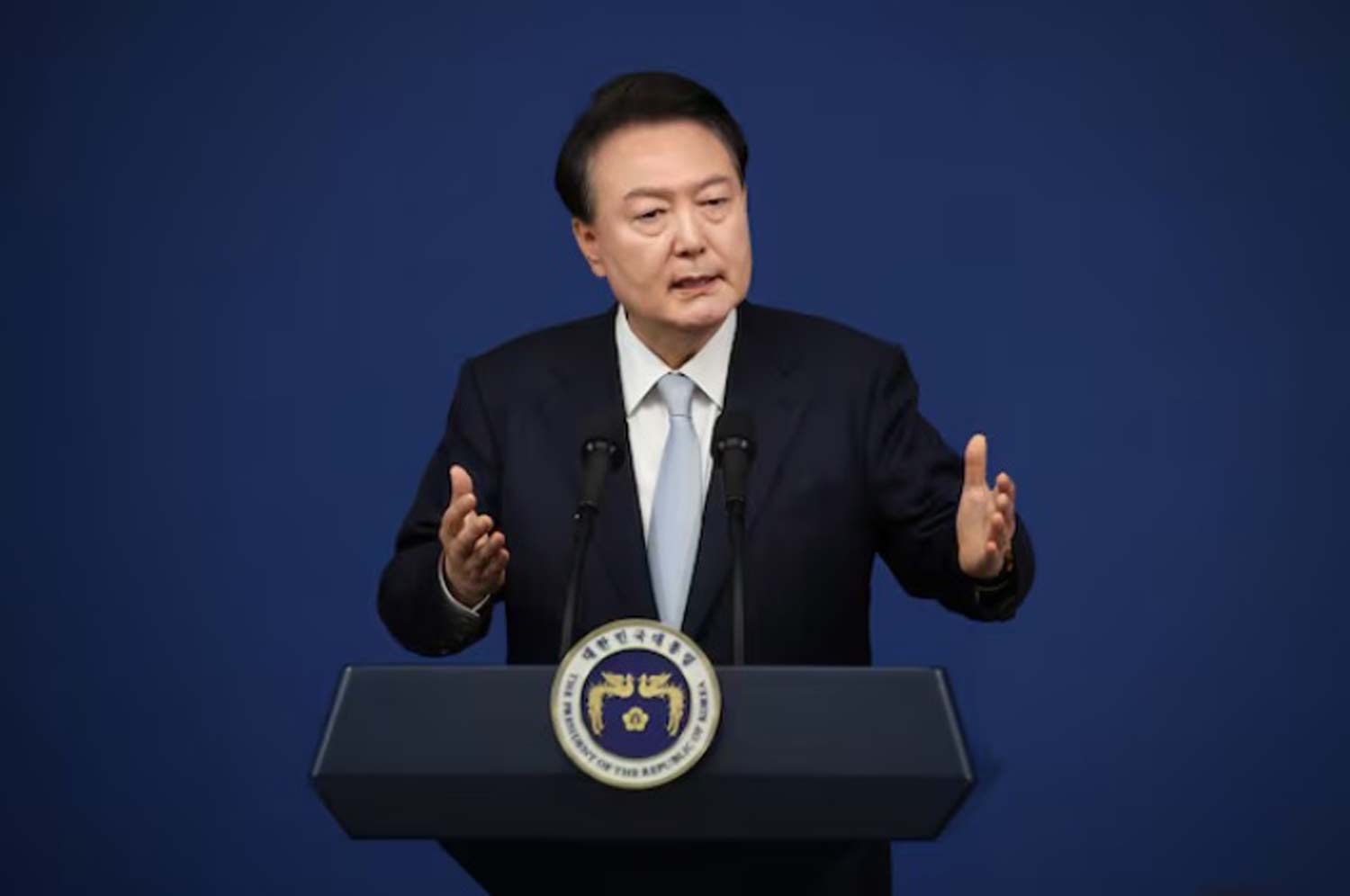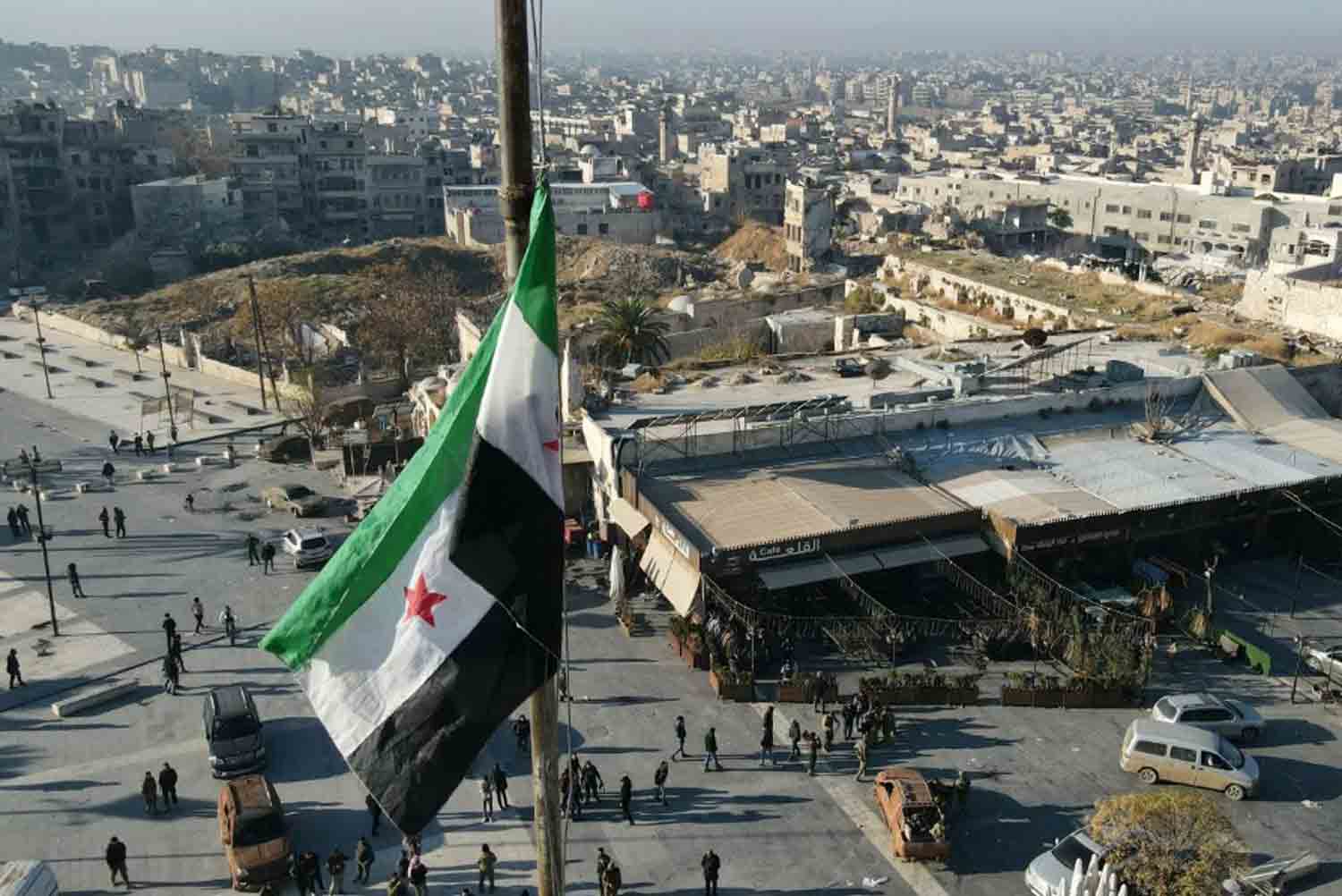US officials have been evaluating the possibility of lifting the $10 million bounty on Hayat Tahrir al-Sham (HTS) leader Abu Mohammad al-Jolani. This comes in light of recent events where his rebel group made significant advances in Damascus, leading to the fall of Bashar al-Assad’s government, as reported by Middle East Eye.
Abu Mohammad al-Jolani, also known as Ahmed al-Sharaa, has been labeled a terrorist by the United States since 2013. His group, HTS, was designated as a terrorist organization by the Trump administration in 2018, coinciding with the imposition of the bounty.
For several years, HTS has sought to be removed from the terrorist list, but these efforts have largely been ignored, leaving the group in control of a small area in northwest Syria.
However, the recent rapid advances by the rebels, culminating in the dramatic end of Assad’s regime, have prompted Washington to reconsider its approach to the former al-Qaeda affiliate.
The senior Arab official, who requested to remain unnamed due to the sensitive nature of the discussions, indicated that opinions within the Biden administration are divided on this matter. In contrast, a former official from the Trump transition team criticized the Biden administration when asked about these discussions.
Jowlani, 42, delivered an impassioned victory address at the historic Umayyad Mosque in Damascus on Sunday, and he is anticipated to play a significant role in Syria’s transition following 54 years of Assad family governance.
“Today marks the purification of Syria,” Jowlani declared to a gathering of supporters in Damascus, emphasizing that “this victory is a result of the people who have suffered in prison, and the mujahideen (fighters) have shattered their chains.”
He criticized the Assad regime, stating that Syria had become a hub for “Iranian ambitions, where sectarianism thrived,” alluding to Assad’s alliances with Iran and its Lebanese ally, Hezbollah.
“moment of risk and uncertainty”
In a statement made hours after the fall of Damascus, US President Joe Biden referred to the rebel takeover as a “fundamental act of justice,” while also warning that it represents “a moment of risk and uncertainty” for the Middle East.
“We will remain vigilant,” Biden asserted. “It is important to note that some of the rebel factions responsible for Assad’s downfall have their own troubling histories of terrorism and human rights violations,” he added, remarking that these groups are “articulating the right messages now.”
Biden stated, “As they assume increased responsibilities, we will evaluate not only their statements but also their actions.”
Subsequently, a senior official from the Biden administration, when questioned about interactions with HTS leaders, indicated that Washington was engaging with various Syrian groups.
The official, who requested anonymity due to the sensitive nature of the discussion, also mentioned that the US was concentrating on securing chemical weapons within Assad’s military stockpile.
In the meantime, the New York Times reported that US intelligence agencies were assessing Jolani, who had reportedly initiated a “charm offensive” to mitigate concerns regarding his previous associations.
Jolani hails from a family originally from the occupied Golan Heights and participated in the Iraq insurgency, spending five years in an American-operated prison in Iraq before returning to Syria as a representative of Islamic State founder Abu Bakr al-Baghdadi.
The US official remarked, “A charm offensive may suggest that individuals are attempting to change their ways and hold different views, warranting consideration. However, one must remain vigilant, as such offensives can sometimes be deceptive.”
“We need to deliberate on this matter. We must observe their conduct and engage in indirect communication to gauge the outcomes,” the official concluded.
US President-elect Donald Trump, set to assume office in just five weeks, has made his stance on the Syrian conflict quite clear, asserting that Washington “should have nothing to do with it [Syria].”
In a social media update on Saturday, Trump stated that Assad has “lost” due to the current weakened states of Russia and Iran, attributing this to the situation in Ukraine and economic challenges for Russia, as well as Israel’s military successes.
Trump seized upon Assad’s potential downfall to advocate for an end to the war in Ukraine, notably omitting any reference to the Syrian opposition or the US’s allies in Syria.
Jordan is actively advocating for the Syrian Free Army
The potential removal of Assad has allowed NATO ally Turkey to strengthen its influence in Syria, diminishing the positions of both Iran and Russia.
Meanwhile, the US maintains significant territorial control in Syria through its allies, who have rushed to fill the power vacuum left by the Assad regime as its forces retreated from various locations.
The US supports rebel groups operating from the al-Tanf desert outpost, located at the junction of Jordan, Iraq, and Syria.
As Assad’s regime falters, the Syrian Free Army (SFA) has taken the initiative, successfully capturing the city of Palmyra.
The Syrian Free Army (SFA) collaborates closely with the United States, with its operations primarily managed from Jordan. Additionally, the SFA maintains strong connections with Jordanian intelligence services.
A former Arab security official informed MEE that King Abdullah II of Jordan recently met with high-ranking US officials in Washington, advocating for ongoing support for the Syrian Free Army.
The former official emphasized that ensuring stability in post-Assad Syria is crucial for Jordan, particularly as the country aims to repatriate hundreds of thousands of refugees and prevent a power vacuum that could facilitate increased captagon trafficking across its borders.
In northeastern Syria, approximately 900 US troops are stationed alongside the Kurdish-led Syrian Democratic Forces (SDF).
On Friday, Arab tribes associated with the SDF advanced across the Euphrates River, capturing a significant number of strategic towns, including Deir Ezzor and al-Bukamal, the latter being a vital border crossing with Iraq.
The US’s backing of the SDF has created tensions in its relationship with Turkey, which perceives the SDF as an affiliate of the banned Kurdistan Workers’ Party (PKK).
The PKK has conducted a guerrilla campaign in southern Turkey for several decades and is designated as a terrorist organization by both the United States and the European Union.
In response to its concerns regarding the PKK, Turkey initiated a military incursion into Syria in 2016, aiming to prevent Kurdish fighters from establishing a quasi-state along its border. This was followed by two additional military operations in 2018 and 2019.
Currently, the Syrian Democratic Forces (SDF) are facing pressure in the north as Turkish-backed rebels, known as the Syrian National Army, have entered the strategically important city of Manbij. Reports from Reuters indicate that these Turkish-supported fighters now control approximately 80 percent of the area surrounding the city center.
Throughout the prolonged conflict in Syria, the United States has imposed sanctions on the Assad regime, permitted Israel to conduct strikes against Iranian targets within Syria, and supported opposition groups that govern roughly one-third of the nation.
Discover more from Defence Talks | Defense News Hub, Military Updates, Security Insights
Subscribe to get the latest posts sent to your email.





